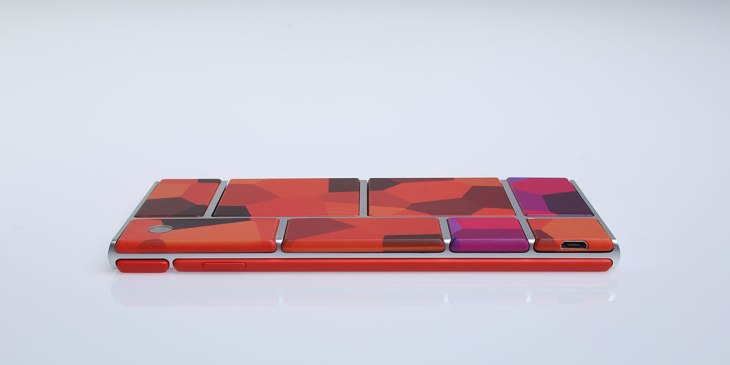Back when Motorola revealed that it’s seriously trying to bring modular smartphones to the masses, it left more than a few of the particulars shrouded in secrecy. Granted, that’s probably because most of the particulars haven’t even been fleshed out yet, but the Google subsidiary is slowly starting to reveal its vision for how these crazy things will actually be made.
Their approach? 3D printing, and lots of it. Motorola has just announced that it’s locked up an exclusive partnership with 3D Systems that will see that printing pioneer producing “Ara smartphone enclosures” and the nifty component modules that snap onto the phone’s main body.
Haven’t been keeping tabs on Project Ara? Here’s the gist of it — Motorola has apparently grown a little weary of the traditional notion of a smartphone where all of the things that make it tick are wrapped up in a plastic body, away from curious eyes and prodding fingers. Now that Motorola has basically inherited Google’s penchant for kooky ideas (not to mention the money), it’s working on creating a phone body with a display (they call it an “endoskeleton”) that users will ultimately be able to snap new components into as needed. Growing weary of your old camera? Pop a new one on there. Need a snappier processor? That’s not out of the realm of possibility.
Now 3D Systems is an interesting player, to say the least — while it’s devoted resources to cracking the consumer market with low-cost printers and 3D scanners for the past two years or so, it’s bread and butter continues to be the sort of hefty, industrial printers that can turn around jobs at a much faster rate. That’s not to say that the company in its current form is ready for the sort of rigor Project Ara demands, so 3D Systems has apparently been asked to create a “high-speed production platform” to churn out those modules and enclosures with the quickness. At this point there’s still no word on when production will start (Motorola is still soliciting early feedback from its so-called “Ara Scouts”) but the company has said that it’s aiming to get the alpha version of its Module Development Kit out the door and into hackers’ hands some time this Winter.
